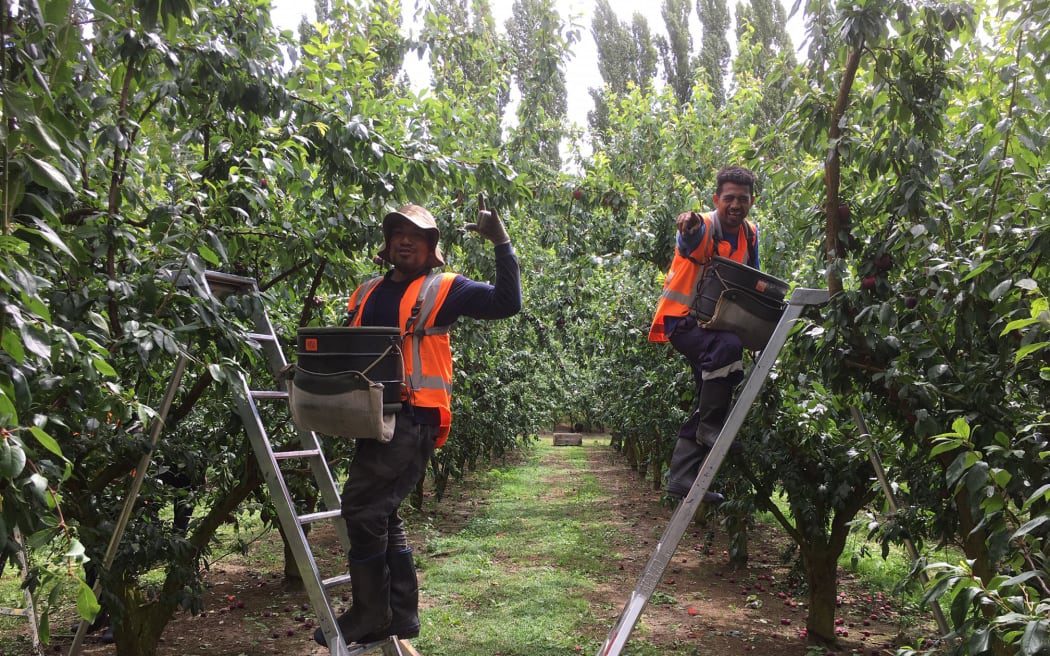By Aui’a Vaimaila Leatinu’u, PMN
Pre-existing issues in the Recognised Seasonal Employer (RSE) Scheme must be addressed before any plans to expand the workforce are made, the Acting Chief Human Rights Commissioner Saunoamaali’i Dr Karanina Sumeo says.

Her comments follow Prime Minister Christopher Luxon’s announcement last week that he wants thousands more seasonal workers from Pacific island countries in Aotearoa.
During his visit to Papua New Guinea, Luxon met with his PNG counterpart James Marape and both leaders discussed a refreshed partnership that could boost the number of places for short-term RSE horticultural workers coming to Aotearoa.
But Commissioner Sumeo says while the expansion is a “good opportunity” to bring in more labourers from the region, she has not seen changes to the industry since a government inquiry uncovered “a lot of concerns around the treatment of Pacific workers”.
The damning review released in November 2022 by the Ministry of Business, Innovation and Employment (MBIE) found that many of the workers were living in conditions that amounted to modern-day slavery.
Speaking to William Terite on Pacific Mornings, Sumeo said the inquiry found the treatment of seasonal workers in Aotearoa was racist and she called for an urgent overhaul of the RSE Scheme.
“Inadequate accommodation, issues around pay deductions, and so forth,” she said.
“What we’re hearing and certainly through the engagements of the commission is that industries want to do better. They know that these problems exist. The industry has worked to provide guidance around human rights.
“There’s a conference on RSE that’s happening soon down in Hawke’s Bay, and we’re hoping to attend that so we can address those things like proper recruitment practices, and pastoral care and so forth.”
The RSE programme employs workers from PNG, Nauru, Tuvalu, Kibati, Vanuatu, Solomon Islands, Fiji, Tonga, and Sāmoa, for up to nine months in any 11 months and return home between seasons.
There are 19,500 workers for the 2023/2024 season. The minimum wage in New Zealand is $23.15, so that would make the minimum hourly rate for RSE workers $25.47 ($23.15 +10 per cent).
The inquiry also identified multiple human rights issues followed by several recommendations, including minimal wage deductions that comply with wage-related acts in NZ, reasonable rent rates on wage, and improved access to healthcare.
Following its inquiry, MBIE issued a report to Cabinet last year suggesting several RSE Scheme improvements, including better accommodation standards, health insurance, guidance, and pay for team leaders alongside worker access to superannuation.
Former immigration minister Michael Wood said at the time that changes were underway to ensure RSE workers were better treated.
He told reporters the changes would also ensure that employers, under the RSE scheme, were undergoing educational modules so they were “crystal clear” about their obligations.
The pressure to improve the scheme has drawn international attention. Sāmoa pushed the MBIE’s recommendations at the Universal Period Review of the United Nations Human Rights Council in Geneva in late April.
Sumeo said Sāmoa was the only Pacific nation to confront New Zealand and request they implement the RSE Scheme review.
“So, this is great timing if the New Zealand government wants to increase the number of RSE workers,” she said.
“It will improve the scheme and will ensure the dignity and rights of our Pacific workers are upheld. We know our industries will benefit from that.”
“Let’s address these concerns and make things right before we bring more of our people here to support us.”
-This article was first published by PMN.







